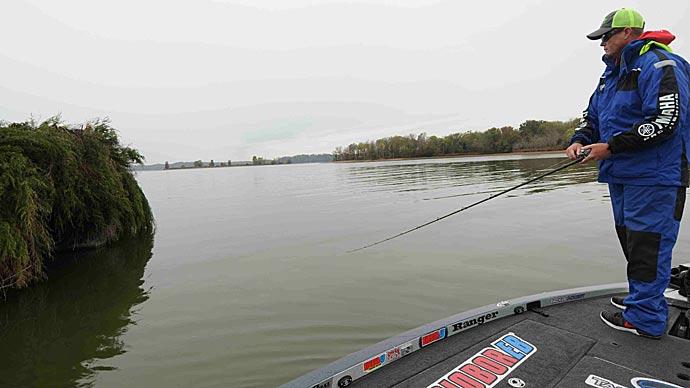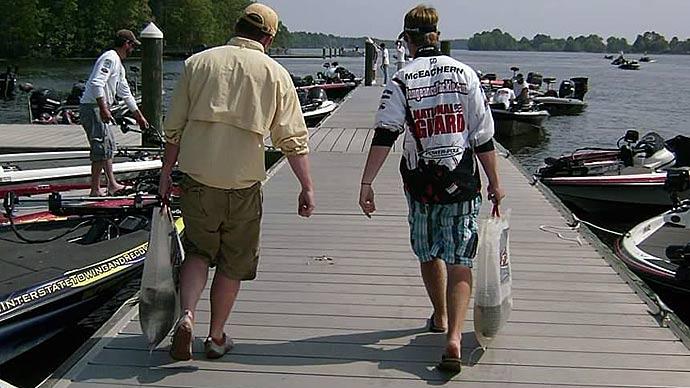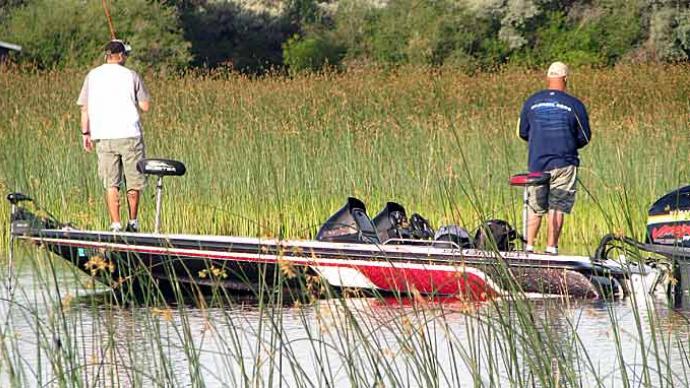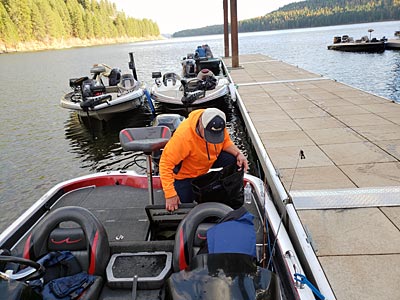
One of the easiest ways to get started with tournament bass fishing is to sign up and fish as a backseater. There are many different names for those who compete from the back deck. Co-anglers, non-boaters, amateurs, and AAAs are all terms used to describe those who fish in the back of the boat.
No matter what they are called in the tournament you are entering, or even if you are tagging along with a buddy who owns a boat, some etiquette will help you be prepared and ensure that you get the most out of the experience.
Author Note: I have experienced multiple levels of tournament bass fishing both as a boater and a non-boater. I have seen both sides of the spectrum and offer these tips to help you succeed.
Pack Light
It can be hard to decide what to bring when you do not know where your boater will be taking you when the fishing trip arrives. Because of this, almost every non-boater tends to bring more than they need for a day.
An excellent way to figure out what to bring is to ask your boater what fishing you will be doing and ask for depths and cover you may be targeting. From there, you can formulate your plan. One of the best rules of thumb is simplifying and downsizing what you bring.
The best advice is to stick with a group of proven lures that you have confidence in. Instead of bringing every lure you own, stick to a few different color patterns and styles. Another benefit of lightening the load is reducing clutter in your boat area. Not every boat has ample storage areas or compartments for you, and if you have too much tackle, you may have nowhere to put it.
Another benefit of downsizing is that you will generally spend more time fishing than retying and digging through your gear. Keep it simple and bring what works best for your fishing style.
Compete Against the Fish
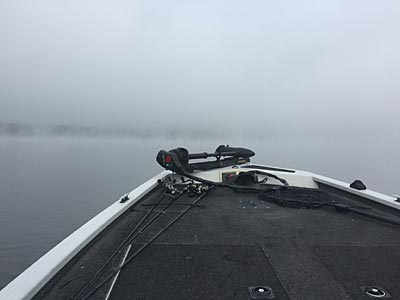
Those running the boat compete against other boaters in many tournament formats. Non-boaters are often only competing against other anglers fishing from the backseat. Even with this fact, there is a common trap that many backseaters fall into. They end up trying to outdo their boater and spend the day comparing their catches. If you are fishing in a tournament with this format, the reality is that you are competing against the fish and other non-boaters. Chances are that if your boater is doing well and catching plenty of fish, you are in a great area, and it is up to you to figure out how to get them to bite.
Besides comparing successes with your boater for the day, many co-anglers also try to replicate exactly how they are fishing. If your boater is fishing quickly with a spinnerbait or crankbait and you follow up a few feet behind them with similar lures, most of those fish have seen the presentation already and are unlikely to strike your bait.
Matching the technique of your boater may work once in a while, but you can often use different lures and catch fish they might have missed. Also, pay close attention to areas that they may not have cast to or try throwing shallower or deeper than they are, while at the same time being respectful to where their line is in the water.
The “Unwritten Rule” For Casting
In fishing, there are plenty of unwritten rules regarding non-boater etiquette. One of the biggest is where you are casting your lures. Some say that a non-boater should never cast forward in front of the steering wheel, but that is not necessarily the case. The best advice is to use a little common sense, communicate with your partner, and pay attention.
Knowing where and where not to cast can vary significantly based on where you are fishing and what lures you are using at the time. If your boater is slowly fishing a jig along the bottom, casting a deep-diving crankbait in front of their line is not a good idea, but it still happens.
A little communication goes a long way here, and while it is not a written rule to ask permission to cast a particular direction, it can help make things easier for both of you and ensure that you both catch fish.
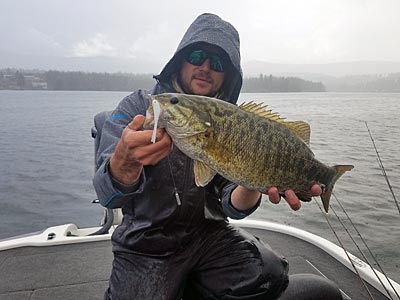
Paying close attention to where your boater casts is another excellent way to stay out of their way and increase your chances of catching fish. If both of you cast the same lure to the same spot, it will hurt your odds.
Another good practice is to watch how the boat is being positioned and how wind and current affect the boat's movements. Paying attention here will help keep your bait in the strike zone longer and not interfere with trolling motors and outboard props.
Gas Money
The topic of gas money will always be debated, but the simple fact is you should offer some gas money to your boater. The dollar amount will vary significantly based on where you fished that day, how far they drove the boat and other costs for the day like parking and boat launch fees.
Some boaters will give you a handshake at the end of the day and tell you to keep your money, and others will gladly accept it. The most important thing is to offer something to thank them for taking you out.
Fishing from the back deck is a great way to fish with someone new and get a chance to get on the water. You can expect a great day on the water by following these guidelines and using common courtesy (and common sense).


